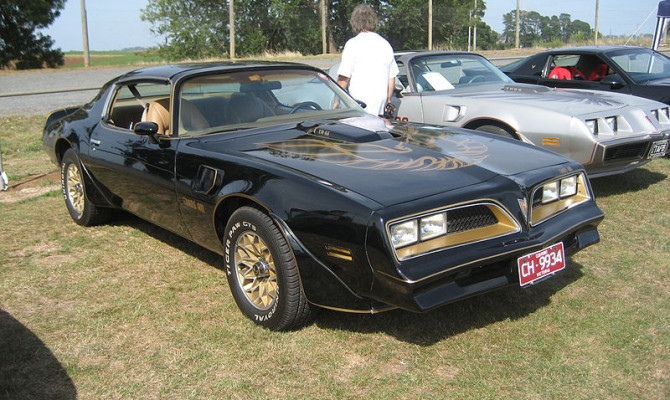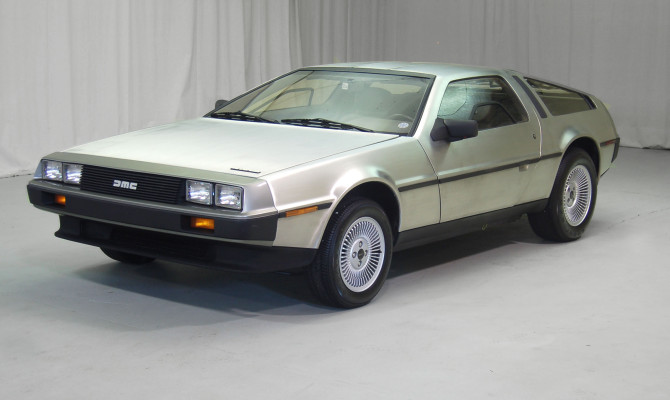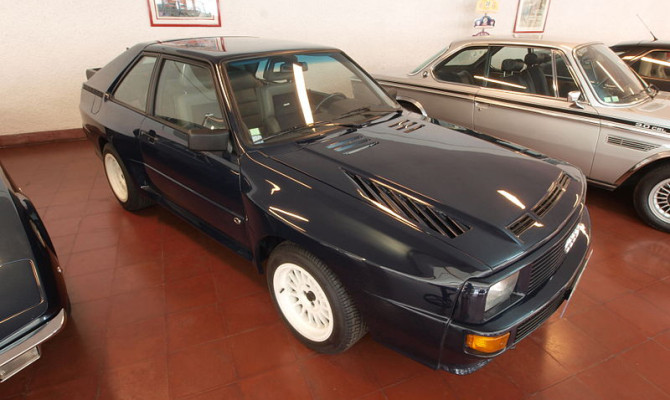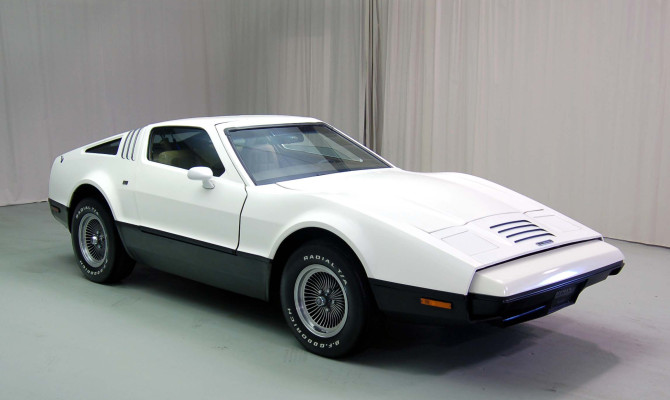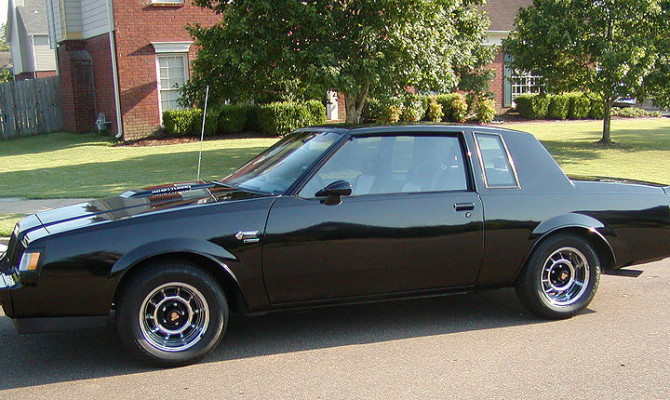by Grant Stoecker
The ‘Malaise Era’ was the antithesis of the muscle car heyday that existed merely a year before its start in 1973.
It was a dark period characterized best by underwhelming engines, EPA restrictions, and questionable styling. In the Malaise Era you could run your new Cobra through the gears without raising the attention of local law enforcement. The Malaise era wasn’t without hope, and the era saw production of a few diamonds in the rough. Here are our picks.
1. 1977 Pontiac Firebird Trans-Am Special Edition
Call it the Burt Reynolds Effect, but the 1977 Trans-Am is still a kick-ass ride. Featured in 1977’s top grossing film, Smokey and the Bandit, the black and gold Trans-Am had as much star power as the moustachioed Reynolds.
The power for the T/A came from a 6.6 litre V8, producing a disappointing 200 horses for 1977, a far cry years prior. It didn’t seem to matter as you cruised down main street, however, T-Tops in the trunk and blasting Journey through the 8-track. The menacing looks of the Trans Am seemed to be more than supple to erase any memory of the days of muscle car past, as other drivers stared in awe from the seats of the latest econo-box.
2. 1981-83 DeLorean DMC-12
The DMC-12 was the car from the future that no one had asked for, but everyone wanted.
Built by an automotive dream team consisting of John DeLorean, Colin Chapman, and Giorgetto Giugiaro, the DMC-12 was built to be a futuristic luxury coupe with a 200 horsepower Wankel rotary engine and price of $12,000. Execution of the concept missed the mark, and the production DMC-12 drew its underwhelming 130 horsepower from a Renault 6, and was sold for $36,000.
Despite this, the DeLorean secured its spot in the hearts of people around the globe as Doc Brown’s time machine in the 80’s mega-franchise, Back to the Future. If only they had come stock with the flux capacitor.
3. 1983-86 Audi Quattro
Germany continued to make fast cars throughout the malaise era, such as the BMW M1 and Porsche 930, but Audi created a completely new segment of car with the introduction of its all-wheel drive performance car, the Audi Quattro.
The Quattro was originally introduced to the European marketplace in 1980, but did not make its way stateside until 1983. With power from its turbocharged five-cylinder going to all four wheels, the Audi Quattro became a rally car legend, and the production models looked the part with its noticeable fender flares, Audi graphics, and BBS alloy wheels. The car was a head of its time, and only 664 were ever sold in the US before Audi discontinued it stateside in 1987.
4. 1974-76 Bricklin SV-1
Canada’s primary contribution to the malaise era was the brainchild of American millionaire Malcolm Bricklin, who dreamt of making the world’s safest sport car, naming his creation the Safety Vehicle One, or SV-1. The SV-1 had a smattering of safety features ranging from an integrated roll cage to safety bumpers, and even lacked an ashtray to discourage drivers from smoking. The Bricklin was powered by an AMC or Ford V8, and was rated favorably at the time against its competitor, the Corvette. Despite initial reviews, the car was notorious for poor build quality, and the engine was prone to overheating due to its small radiator. Bricklin went into receivership in 1976, and the SV-1 was dead in the water.
5. 1987 Buick Grand National/GNX
The Buick Grand National was not your grandfather’s Buick. Often referred to as Darth Vader’s car due to its all black paint scheme, the Buick Grand National was powered by a Turbocharged V6, and was rated for only 245 horsepower. The Grand National Experimental, or GNX, was the baddest of the Grand Nationals, and after rolling off the production line, it was sent to the mad scientists over at McLaren Performance, who modified the engine to be able to run 0 to 100 m/h in a mere 4.3 seconds, a figure impressive by modern standards.
Grant Stoecker writes for Hagerty Insurance. Hagerty is the world’s leading specialist provider of classic car and boat insurance. Learn more at hagerty.ca
Recent Comments
- { Enjoyed your Forest of Bowland in the BMW X5M, particularly the photo of the BMW in front of the main part of Stonyhurst College where... }
- { Bantam designed the Jeep, not Willy's or Ford. The American military gave the original Bantam prototype to Willys and Ford to copy. There is plenty... }
- { All Escalades come with a 6.2-lilter V8 engine that produces 420 horsepower. A six-speed automatic is the only transmission offered and drives the rear wheels.... }
- { Alexandra is an excellent journalist. }
Popular Posts
- Journey to a ‘Sparkling’ Luxury Okanagan Resort “Four lucky readers will put a Dodge Journey’s weekend-...
- The Need For Speed: Hike Those Highway Limits More than half of those polled believe the province sho...
- Drives-U-Crazy… Erratic drivers. An early morning drive from Kelowna to Vancouver is nor...
- Readers Respond: The Pros and Cons of Increasing B.C. Speed Limits Increasing the speed limits will only increase risk to...
- Honda CR-V Review: The Compact Crossover To Get Things Done The CRV is a very stylish and aerodynamic crossover veh...


